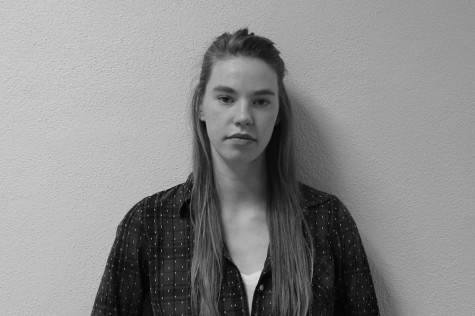A Glance Into the Future
Two students spent the summer as college students
September 27, 2014
This summer, juniors Zoë Leuthner and Mack Trotter participated in the Carleton Summer Science Institute, a three week camp where they took mock college classes, lived on campus and connected with students from across the United States who shared their interests.
Trotter said he learned about the camp through a simple Google search and thought it would be a good way to keep himself busy over the summer.
“I wanted something to do over the summer besides sitting around, and I knew that attending a summer college camp would help with admission into any college.”
Leuthner’s mother encouraged her to attend the camp, but she said she ultimately decided to participate to meet new people and learn more about neuroscience.
“The chance to meet people from all across the country seemed pretty cool, and the neuroscience aspect,” she said. “I’ve been interested in neuroscience for two years now, and it seemed like a good chance to learn more about it.”
The class options included: Neuroscience, Animal Behavior, Genetics and Genomics to Solve Problems Using Plants and Chemistry of the Environment. Campers choose their three favorite classes and are immersed in learning and class discussion for three weeks.
Leuthner said her favorite class was neuroscience because it presented her with a rare opportunity to see a real neuron.
“In a lab one day we got to see a real neuron, which was super cool,” she said. “We had worms we paralyzed and dyed, then we blew them up under a microscope and were able to see actual neurons. It was science in action!”
Trotter enjoyed the Chemistry of the Environment class because he said it got down to the nitty gritty quantum mechanics of how chemistry in the environment works. He said his assigned lab project taught him about lead and its impact on the surrounding soil and plants.
“We took soil from around a house painted with lead paint and boiled it down to ions, then we used a mass spectrometer to see how many parts per billion the sample had,” he said. “We then compared it to normal soil. We went through the same process with plants and then compared the levels we found with the FDA approved levels of lead in soil.”
Trotter said one of the more surprising things he experienced at camp was the quality of the professors.
“My classes were the best classes I’ve ever taken and the teachers were the best teachers I’ve ever had,” said Trotter. “The professors were all highly regarded in their respective field and treated us and engaged us as if we were really college students.”
Trotter said the camp helped him open his mind to all the possibilities of what he can study in college, along with the importance of a positive learning environment.
“When I was at camp, I changed my major three times a day. Currently it’s micro evolutionary soil biology, but that could change tomorrow,” he said. “What I did learn was how the environment in which you learn is just as important if not more important than what you learn and in college the environment is much more engaging.”
For anyone looking for a similar experience for next summer or during the school year, Trotter said that it is not hard to get involved.
“All you have to do is search online, find a camp that you like and then email the director of admission.They usually are very friendly and give you tons of information you wouldn’t find on the website,” he said. “It’s a great experience.”



